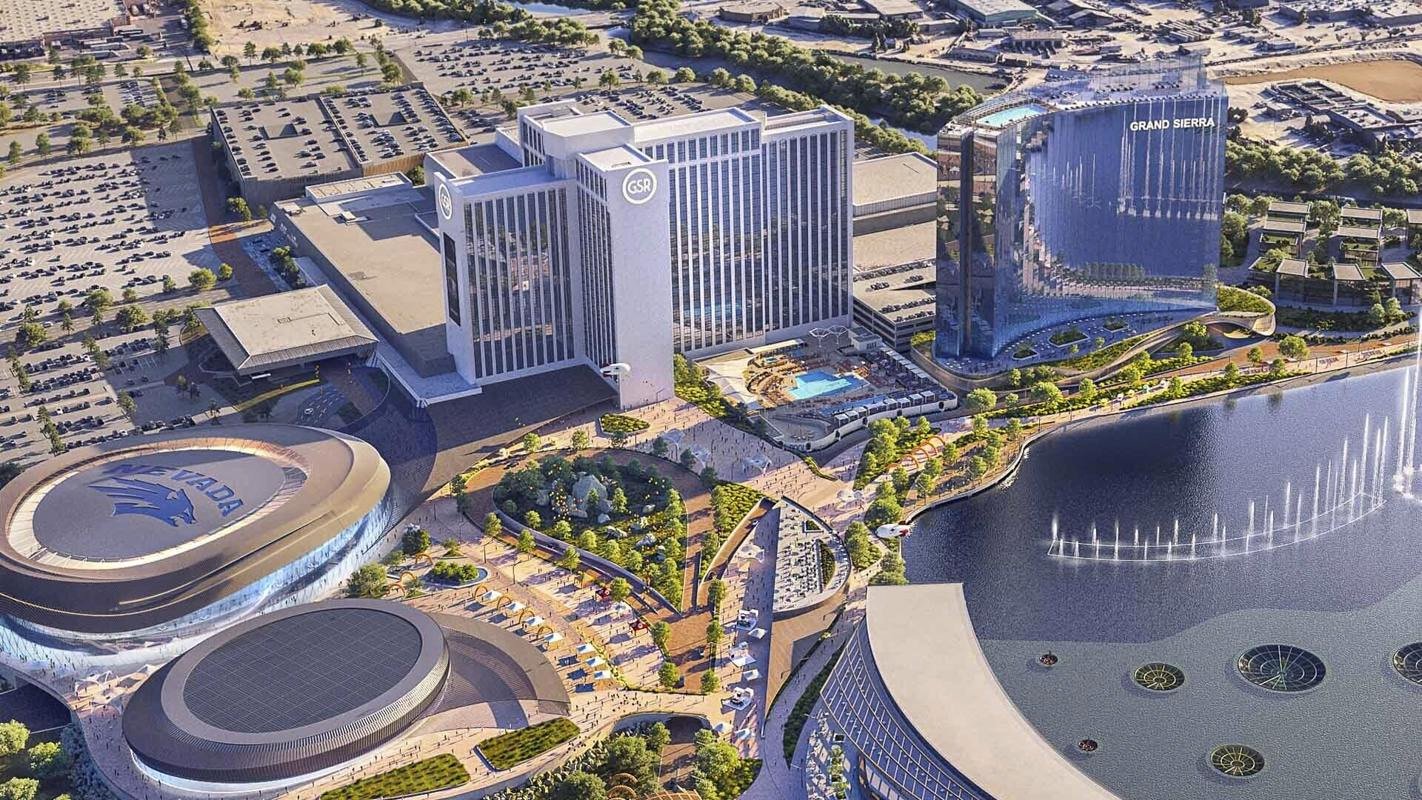Reno approves $61.3 million in tax rebates for Grand Sierra Arena project

Reno city officials have approved a tax increment financing (TIF) plan that will provide up to $61.3 million in property tax reimbursements to help fund a $435 million indoor arena at the Grand Sierra Resort (GSR), a key component of a $1 billion redevelopment led by billionaire Alex Meruelo.
The arena will seat 10,000 and serve as the new home court for the University of Nevada, Reno’s men’s basketball team. It is also expected to host concerts, family events, and minor-league hockey games. Groundbreaking on the project is set for next month.
The Reno Redevelopment Agency Board, which consists of city council members, voted 5-2 in favor of the TIF package. Under the agreement, GSR will pay full property taxes but receive 90% of the future incremental increases as rebates through 2035. The city will retain the remaining 10%, or roughly $6.8 million.
Meruelo has committed 5% of the TIF reimbursements to support youth sports and transferred the lease for Fire Station 21 to the city as part of the agreement.
“Everything I've heard from every single one of you has impacted me,” Meruelo said during the meeting. “It is risky, no question about it. But I believe in the city, I believe in my advancement. I believe in GSR and the people here.”
University President and former Nevada governor Brian Sandoval praised the development. “To be competitive in college sports, we have to have a venue and the ability to generate revenue,” he said. “The GSR project checks every single box.”
The TIF plan has drawn criticism from a coalition of rival casinos — including the Peppermill, Atlantis, and the Nugget — which argue the GSR site does not qualify as a “blighted area,” a legal requirement under Nevada law for such incentives. Council member Meghan Ebert, who voted against the proposal, questioned the use of public tools for a private venture. “I’m just not exactly sure why this particular investment should make sense to us, knowing that our downtown is in the shape that it is,” she said.
Still, city officials contend the plan poses no fiscal risk. “This puts the city and the agency at no financial risk,” said Bryan McArdle, Reno’s revitalization manager, adding that the rebates are derived solely from tax revenue that would not exist without the project.
The arena is part of the project’s first phase, which also includes an aqua driving range, a 2,400-space parking garage, and a 50,000-square-foot community ice rink. Future phases could bring a new hotel tower, 300 apartments, and 25,000 square feet of retail by 2036.
“This state-of-the-art facility will elevate Nevada Athletics and Nevada basketball to new heights,” said Stephanie Rempe, athletics director at the University of Nevada.
According to Meruelo Gaming, the development faces a $145.8 million funding gap, of which the TIF will cover less than half. “That highlights the risk that Meruelo is taking on this project,” said Andrew Diss, the company’s chief strategy officer.
Mayor Hillary Schieve welcomed the private-public partnership. “We don’t have a lot of economic development tools… so in order to make things work, we have to do private-public partnerships,” she said. “I want to send a message to the outside world that Reno is doing something.”
















